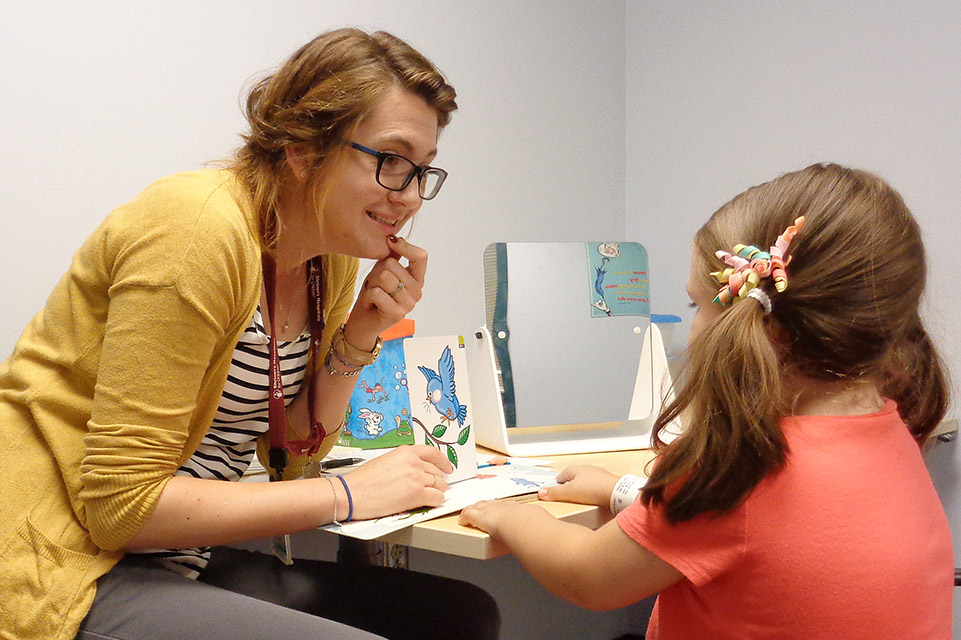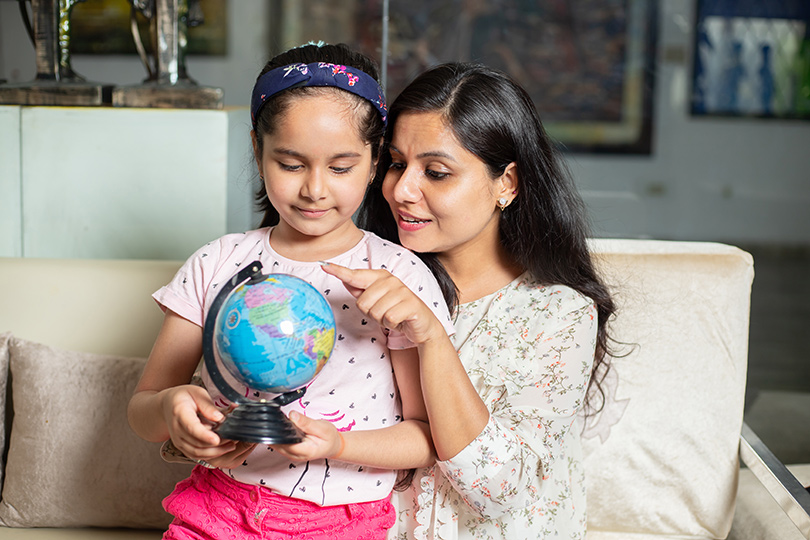Pediatric Rehabilitation and Therapy
Shriners Children's pediatric rehabilitation and therapy services support your child physically, developmentally and emotionally.
Shriners Children’s provides comprehensive pediatric inpatient and outpatient therapies to improve your child’s function and quality of life, restore independence and promote physical healing. Our caring team will evaluate your child’s skills based on their current function, age, and your concerns and goals. Based on the evaluation, the therapist will make recommendations, including whether an inpatient or outpatient setting is best. We will develop a custom plan to ease the physical, developmental and cognitive effects of your child’s condition.
We consider you to be a member of your child’s team and will provide advice, guidance and training along the way that can improve your child's progress.
Outpatient and Intensive Day Treatment Programs
Some children require extensive rehabilitation and therapy services, but they do not require an inpatient stay. We've created outpatient programs just for them. Even if your child is not staying at one of our facilities, they can still participate in therapy with regularly scheduled outpatient visits, or half-day or full-day goal-directed programs.
Inpatient Rehabilitation
Shriners Children’s inpatient rehabilitation units serve children and adolescents who require intensive rehabilitation and medical management due to neurological, musculoskeletal, orthopedic or other medical conditions following stabilization of their acute medical issues. Physiatrist-led interdisciplinary teams help your child recover from injury or loss of function. Physicians, physical therapists, occupational therapists, speech therapists, nurses, social workers and many other healthcare team members work with your child and family on personalized functional goals. All care is provided through a comprehensive, interdisciplinary rehabilitation approach.
If your child has functional difficulties that have disrupted their development and ability to perform certain tasks, a stay in our our inpatient rehabilitation unit may be recommended. To qualify, your child must be able to participate in intensive therapy (three hours per day, five days per week) and require physical or occupational therapy, as well as at least one other therapy service such as speech and language pathology. Our IRUs (inpatient rehabilitation units) are located at our Chicago, Philadelphia and Sacramento, California hospitals. For children and adolescents who, due to the complexity of their nursing, medical management and rehabilitation needs, require and can be expected to benefit from an inpatient stay, our IRUs provide invaluable care. Our approach to the delivery of rehabilitation care fosters frequent, structured, and documented communication among all disciplines to establish, prioritize and achieve your child’s treatment goals. .
Services Offered
The Shriners Children's pediatric rehabilitation and therapy services vary by location. They may include all, or a combination of those listed below.
Physical Therapy
Physical therapy can improve the care and outcomes of many pediatric conditions. Our physical therapists work one-on-one with you and your child, teaching you safe methods of transporting/transferring your child and showing you exercises to increase your child's strength and mobility, and enhance their independence.
Physical therapy can also help improve your child's confidence by providing them with adaptive equipment, braces or prostheses and showing them the proper techniques for use. Whether your goal for your child is to learn to sit, stand or walk, improve their wheelchair skills or use new prostheses, our caring physical therapists can help them get there.
Occupational Therapy
Occupational therapy can help your child better participate in routine childhood activities, such as improving their hand skills or ability to get dressed, play, eat or attend school. Our occupational therapists may also provide your child with specialized equipment, like customized splints or braces, to help increase their independence as they learn to do more on their own.
Speech Therapy
Speech therapy can help your child improve communication and feeding/swallowing. Our speech therapists target all aspects of childhood and adolescent communication, including sound production, understanding language (reception), use of language (expression), alternate means of communication, memory and cognition, as well as the oral-motor control necessary for safe eating.
Recreational Therapy
Art therapy, aquatic therapy, pet therapy, music therapy and gardening are a few of the ways we use recreation to enhance your child's treatment plan and make the time they spend with us a little more fun. Our recreational therapists can also plan specific events and leisure activities that improve your child's health, functional abilities, independence and overall quality of life.
Child Life
Child life programs can reduce the stress created by a child's fears and misconceptions of hospitalization and medical procedures. Our therapists will teach your child coping skills through opportunities to play, learn and interact with others in a safe environment.
Understanding Your Child's First Pediatric Rehabilitation Appointment
Your child may meet with multiple people at their first visit, which is why our staff typically schedules your appointment with your doctor on the same day as your therapy appointment.
To help us better coordinate your child’s care, let us know if your child is currently receiving physical, occupational, and/or speech therapy services in any of the following settings:
- Early intervention
- School
- Home
- Outpatient facility
If so, please bring your child’s most recent therapy progress notes and their therapist’s contact information to the appointment. We value the input of your child’s therapist and consider them part of our care team.
Since our therapists will most likely need to assess your child's ability and mobility, they should wear comfortable clothing, such as a t-shirt, shorts or tennis shoes and bring any assistive device(s) they may currently use, or are no longer using due to growth or discomfort.
After your child's evaluation, your Shriners Children's therapist will develop a care plan for your child and share it with you. They'll also work closely with you to apply the necessary skills to help your child's progress at home.

Caring for Each Child's Overall Health and Well-being
REhabilitation and Therapy Services
View All Related Services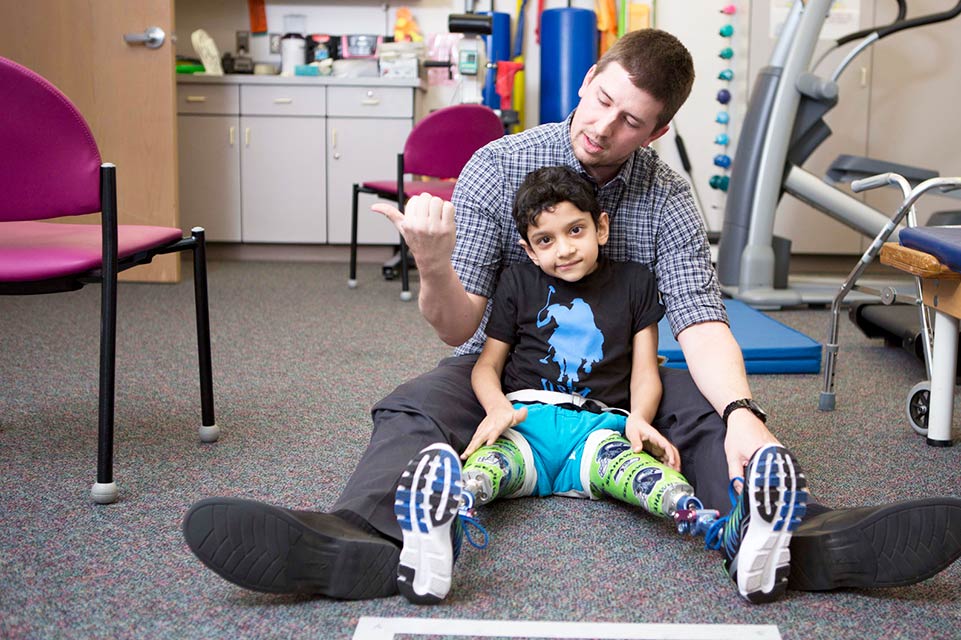
Occupational Therapy
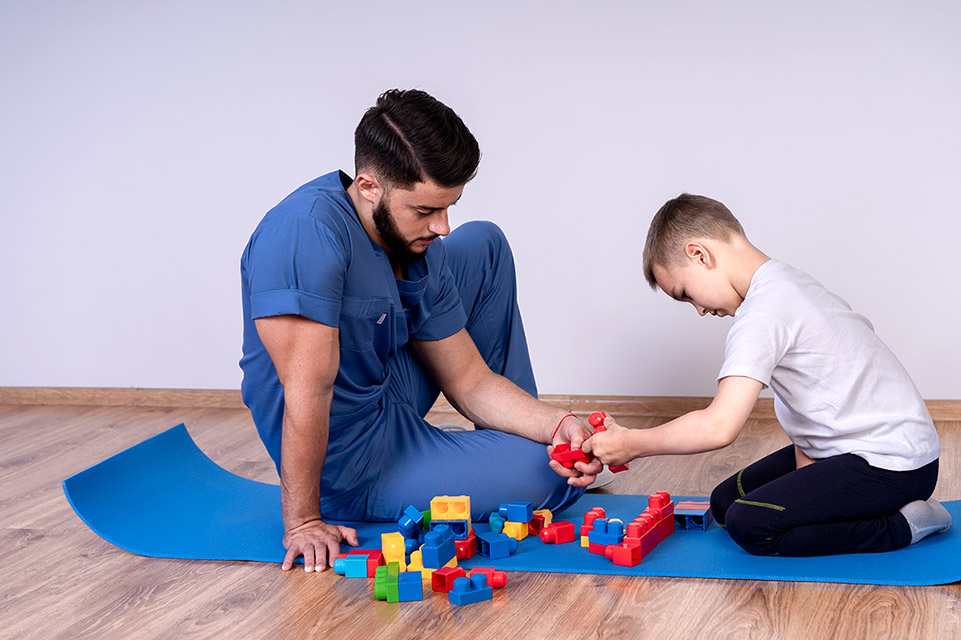
Recreational Therapy
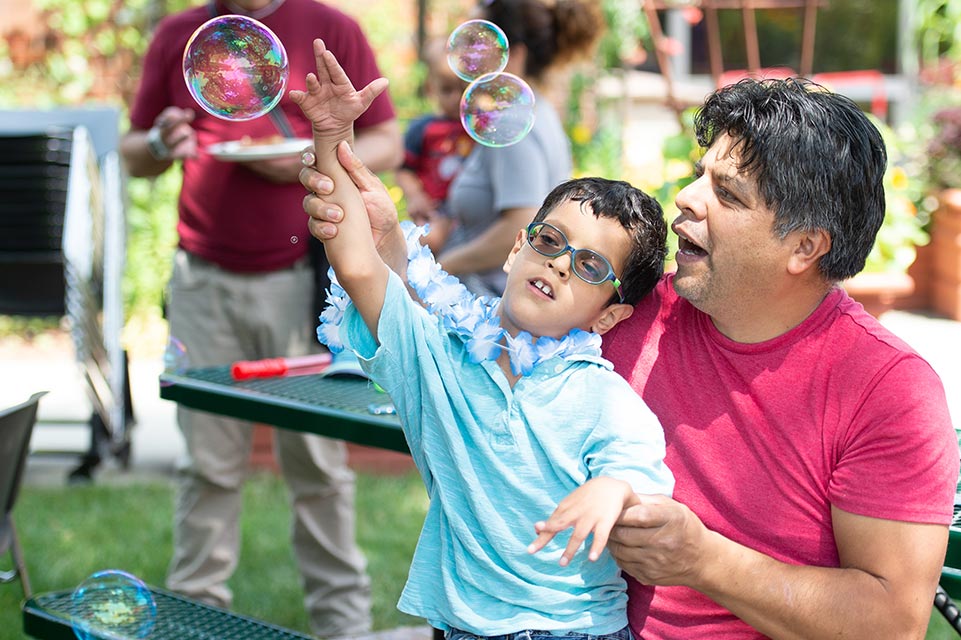
Inpatient Rehabilitation Following Burn Injury
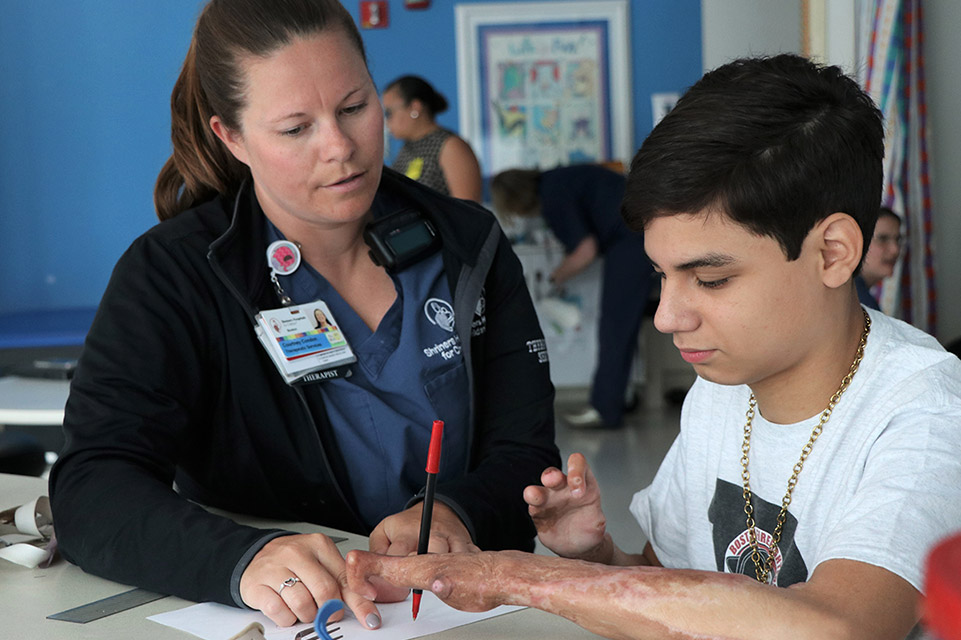
Aquatic Therapy
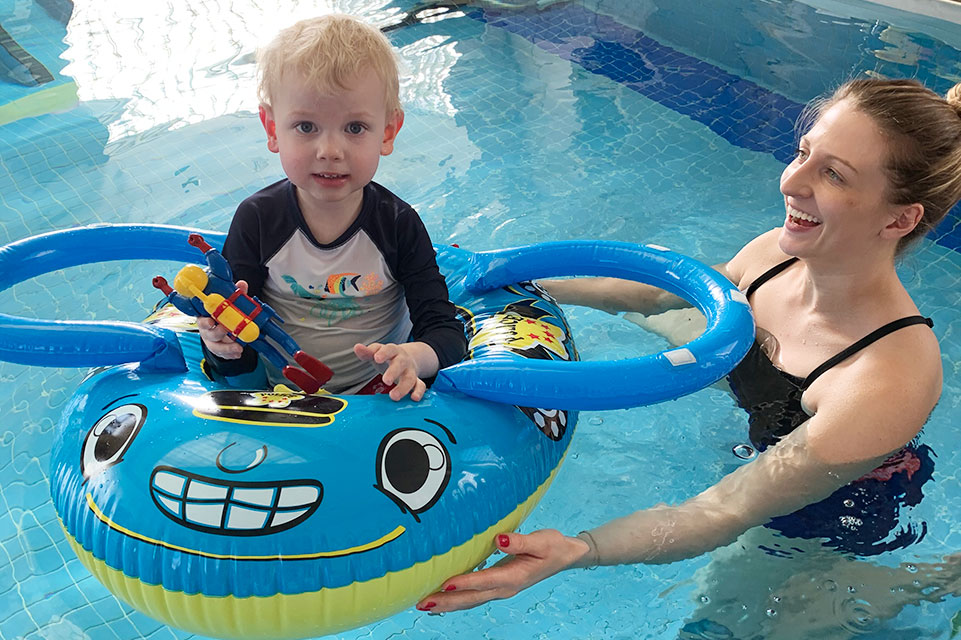
Music Therapy
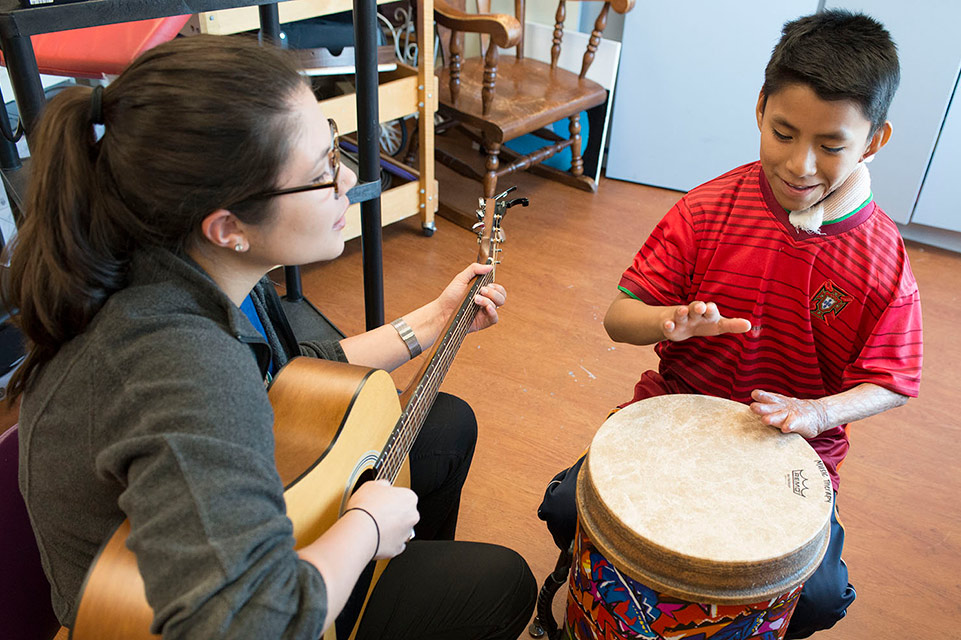
Pet Therapy
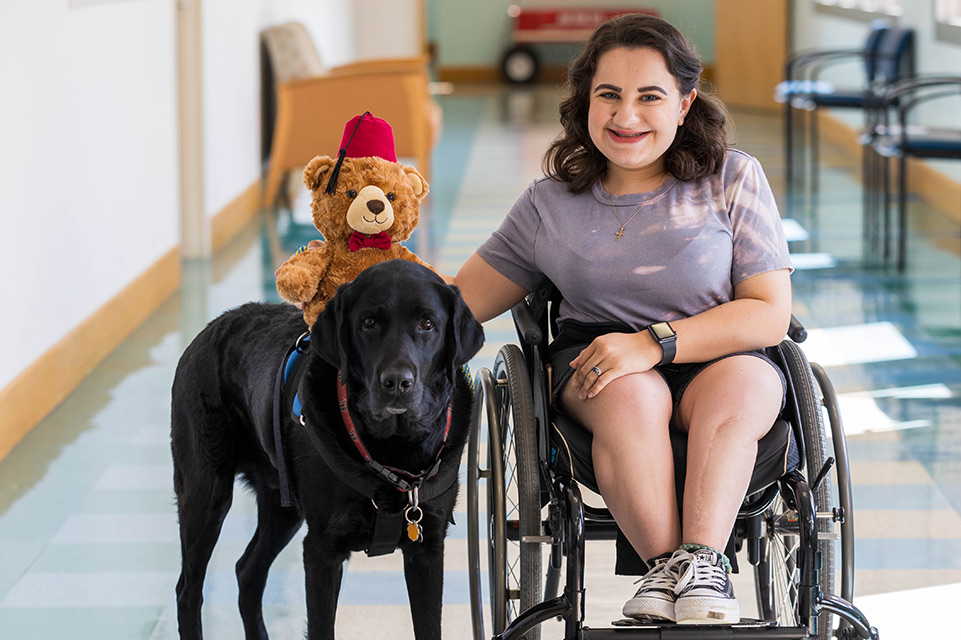
Speech Therapy
